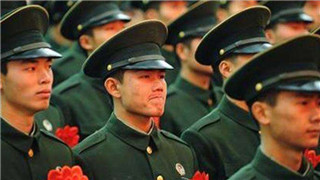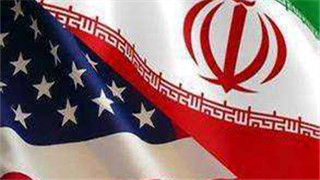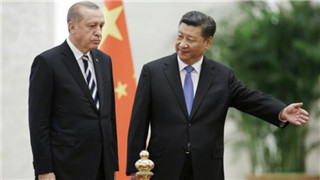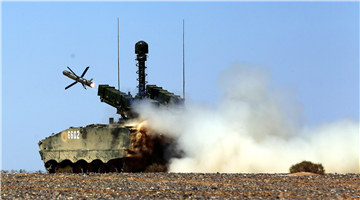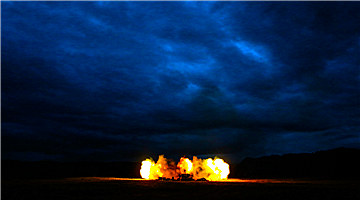The US President Donald Trump signed the National Defense Authorization Act (NDAA) for Fiscal Year 2019 approved earlier by the Houses of Congress at the US Army's Fort Drum base in New York on August 13.
The act makes the US military spending to a record high since the wars in Afghanistan and Iraq. The act also prohibits the US-Russia military cooperation, calls for an enhanced review of any national security threat posed by foreign investments and contains negative China-related contents.
Analysts believe that the act reflects once again the Trump administration's strategic focus and expansionary military layout, and regards inter-state strategic competition as the top challenge facing the United States. The military hegemony tendency and zero-sum mindset reflected in the act are alarming.
News fact
At the signing ceremony, Trump claimed the act as "the most significant investment in US military and US soldiers in modern history”.
The act authorizes about $716.3 billion defense spending for fiscal year 2019. The new budget has seen a $160 billion increase over the budget from the fiscal year 2018, marking the largest military budget in the US history.
The act, which includes $639 billion in "basic budget funds" and $69 billion in "war funds", authorizes a 2.6% military pay raise and increases the active duty forces by 15,600 service members. On the acquisition side, the act funds 13 new warships and 77 F-35 fighters.
The act also identifies countries such as Russia and China as “strategic competitors” and launches targeted initiatives. These initiatives includes clauses such as prohibiting the US-Russian military cooperation, extending military assistance to Ukraine, demanding the formulation of so-called "whole-of-government strategy" on China as well as controls on the US government contracts with China's Zhongxing Telecom Equipment (ZTE) Corp and Huawei Technologies Co., Ltd. and other negative China-related contents.
The act strengthens the authority of the Committee on Foreign Investment in the United States (CFIUS), which reviews proposed foreign investments to weigh whether they threaten national security.
In-depth analysis
Diao Daming, associate professor of School of International Studies at the Renmin University of China, said the act reflects the menacing program made by Trump administration
First, in order to prepare a military foundation for the political purpose of "America First", the Trump administration must increase overall military spending and increase its military strength.
Second, the bill encloses a lot of "selfish motives”. For example, the Foreign Investment Risk Review Modernization Act (FIRRMA), which was supposed to be a special act, was passed by the Congress with the “hitchhiking” defense act since it was difficult to approve separately due to its restrictions on foreign investment by American enterprises. This shows the NDAA adds a lot of other contents in the name of “national security”.
Real-time commentary
Based on the previous National Security Strategy Report and National Defense Strategy Report, the NDAA once again shows the US military hegemony tendency and zero-sum mindset, which deserves high vigilance.
When it comes to relations with China, the US should abandon its Cold War thinking, and view China and the China-US relations in a correct and objective manner.
It should adhere to the one-China policy and the stipulations in the three joint communiqués, and refrain from implementing the negative China-related clauses, so as to avoid harming China-US relations and bilateral cooperation in key areas.
In addition, Chinese and American companies have strong willingness and great potential to deepen investment cooperation and the two governments should comply with the call of enterprises and provide a favorable environment and stable expectations.
The US side should objectively and fairly treat Chinese investors, and avoid the CFIUS becoming an obstacle to investment cooperation between Chinese and the US firms.
Disclaimer: The author is Liu Yang, Liu Si, Xu Jianmei, and Li Ao, reporters with the Xinhua News Agency. The article is translated from Chinese into English and reedited by the China Military online. The information, ideas or opinions appearing in this article are those of the authors from the Xinhua News Agency and do not reflect the views of eng.chinamil.com.cn. Chinamil.com.cn does not assume any responsibility or liability for the same. If the article carries photographs or images, we do not vouch for their authenticity.

